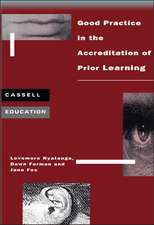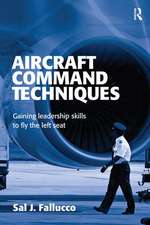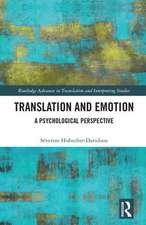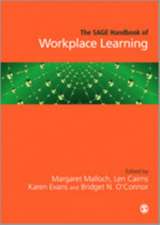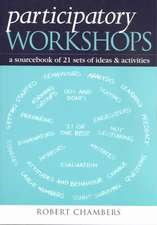Global Trends in Translator and Interpreter Training: Mediation and Culture: Bloomsbury Advances in Translation
Editat de Séverine Hubscher-Davidson, Dr Michal Borodoen Limba Engleză Paperback – 15 ian 2014
| Toate formatele și edițiile | Preț | Express |
|---|---|---|
| Paperback (1) | 258.42 lei 6-8 săpt. | |
| Bloomsbury Publishing – 15 ian 2014 | 258.42 lei 6-8 săpt. | |
| Hardback (1) | 1007.20 lei 6-8 săpt. | |
| Bloomsbury Publishing – 6 iun 2012 | 1007.20 lei 6-8 săpt. |
Din seria Bloomsbury Advances in Translation
- 23%
 Preț: 192.55 lei
Preț: 192.55 lei - 22%
 Preț: 257.03 lei
Preț: 257.03 lei - 21%
 Preț: 218.74 lei
Preț: 218.74 lei - 22%
 Preț: 225.24 lei
Preț: 225.24 lei - 22%
 Preț: 256.20 lei
Preț: 256.20 lei - 23%
 Preț: 198.30 lei
Preț: 198.30 lei - 22%
 Preț: 230.79 lei
Preț: 230.79 lei - 14%
 Preț: 197.77 lei
Preț: 197.77 lei - 23%
 Preț: 192.48 lei
Preț: 192.48 lei - 22%
 Preț: 238.22 lei
Preț: 238.22 lei - 22%
 Preț: 259.34 lei
Preț: 259.34 lei - 23%
 Preț: 198.30 lei
Preț: 198.30 lei -
 Preț: 217.62 lei
Preț: 217.62 lei - 13%
 Preț: 257.03 lei
Preț: 257.03 lei - 13%
 Preț: 263.62 lei
Preț: 263.62 lei - 30%
 Preț: 569.06 lei
Preț: 569.06 lei - 13%
 Preț: 238.94 lei
Preț: 238.94 lei - 13%
 Preț: 181.77 lei
Preț: 181.77 lei - 30%
 Preț: 598.45 lei
Preț: 598.45 lei - 22%
 Preț: 239.02 lei
Preț: 239.02 lei - 23%
 Preț: 197.86 lei
Preț: 197.86 lei - 22%
 Preț: 256.59 lei
Preț: 256.59 lei - 11%
 Preț: 344.52 lei
Preț: 344.52 lei - 23%
 Preț: 191.04 lei
Preț: 191.04 lei - 24%
 Preț: 189.70 lei
Preț: 189.70 lei - 13%
 Preț: 256.59 lei
Preț: 256.59 lei - 13%
 Preț: 257.12 lei
Preț: 257.12 lei
Preț: 258.42 lei
Preț vechi: 331.65 lei
-22% Nou
Puncte Express: 388
Preț estimativ în valută:
49.45€ • 51.32$ • 41.34£
49.45€ • 51.32$ • 41.34£
Carte tipărită la comandă
Livrare economică 15-29 martie
Preluare comenzi: 021 569.72.76
Specificații
ISBN-13: 9781472529909
ISBN-10: 1472529901
Pagini: 288
Dimensiuni: 156 x 234 x 15 mm
Greutate: 0.41 kg
Editura: Bloomsbury Publishing
Colecția Bloomsbury Academic
Seria Bloomsbury Advances in Translation
Locul publicării:London, United Kingdom
ISBN-10: 1472529901
Pagini: 288
Dimensiuni: 156 x 234 x 15 mm
Greutate: 0.41 kg
Editura: Bloomsbury Publishing
Colecția Bloomsbury Academic
Seria Bloomsbury Advances in Translation
Locul publicării:London, United Kingdom
Caracteristici
Updates research in translator and interpreter education, situating it in broader curricular and technological discussions.
Notă biografică
Séverine Hubscher-Davidson is Lecturer in Translation Studies in the School of Languages and Social Sciences, Aston University, UK.Michal Borodo is Assistant Professor in the Institute of Modern Languages and Applied Linguistics at Kazimierz Wielki University, Poland.
Cuprins
Series Editor's Preface Contributors Introduction, Séverine Hubscher-Davidson and Michal BorodoPart 1: Curriculum Issues in an International ContextChapter 1: Curriculum Ideologies in Translator and Interpreter Training, John Kearns Chapter 2: Translation Competence: Training for the Real World, Christina Schäffner Chapter 3: The EN 15038 Standard: Is there a Washback Effect on Translation Education? Anca GreerePart 2: Global Trends in Technology for T&I TrainingChapter 4: Translation Technologies as Seen Through the Eyes of Educators and Students: Harmonizing Views with the Help of a Centralized Teaching and Learning Resource, Elizabeth Marshman & Lynne BowkerChapter 5: Assessing Competence in Using Electronic Corpora in Translator Training, Patricia Rodríguez-Inés & Amparo Hurtado AlbirChapter 6: Subtitling and the Didactics of Translation, Laura Incalcaterra McLoughlin Part 3: Translation, Intercultural Communication and EmpowermentChapter 7: Teaching and Learning the Importance of Ideological Awareness for Chinese-speaking Trainee Translators, Valerie PellattChapter 8: The Role of Translation in Other Learning Contexts: Towards Acting Interculturally, Maria González DaviesChapter 9: Towards Empowerment in Translator Education: Students' Opinions and Expectations of a Translation Training Course, Konrad Klimkowski & Katarzyna KlimkowskaPart 4: Global Perspectives on the Translation ProcessChapter 10: Training of Professional Translators in Australia: Process-oriented and Product-oriented Evaluation Approaches, Marc OrlandoChapter 11: Addressing the Question of Ethical Dilemmas in Community Interpreter Training, Lukasz Kaczmarek Chapter 12: Tracing Strategic Behaviour in Translation Processes: Translation Novices, 4th-semester Students and Professional Translators Compared, Susanne Göpferich Index
Recenzii
My joy and exuberance are insurmountable when I find accessible, original scholarship that empowers me in my practice, research, and teaching. [This book] include[s] the kind of scholarship that serves this purpose ... [It] will appeal to interpreters, service providers, researchers, educators, and any reader interested in interpreting and translation services and studies.
Stimulating reading! This innovative and thought-provoking collection of articles, by authors with their finger on the pulse of recent translator and interpreter training trends, tackles salient issues, addressing fundamental questions through well-informed studies in the field.
This volume offers a fascinating view of the rich tapestry that is contemporary translator education. The studies covered move from micro-level investigations of students' translation strategies to macro-level interrogations of the ideologies that inform translation curricula. Drawing on educational, technological and ideological approaches, amongst others, it presents a picture of an area in flux, where trans-national standardization and local exigencies come up against each other, and received wisdom is - or should be - constantly questioned.
In an increasingly globalized but also splintered world, translator training is absolutely vital. Therefore, Global Trends in Translator and Interpreter Training edited by Séverine Hubscher-Davidson and Michal Borodo is a most timely publication. It comprises chapters by a selection of international authors which offer practically-oriented proposals firmly grounded in state-of-the-art IT technologies, in rapidly changing needs and expectations of young translation adepts and in burgeoning 21st-centurytranslation theory, to embrace such issues as intercultural communication,greater empowerment of translators and their increasingly exacting ethical commitments. Any teacher or student engaged in academic translator training programmes would be well advised to read this book.
Stimulating reading! This innovative and thought-provoking collection of articles, by authors with their finger on the pulse of recent translator and interpreter training trends, tackles salient issues, addressing fundamental questions through well-informed studies in the field.
This volume offers a fascinating view of the rich tapestry that is contemporary translator education. The studies covered move from micro-level investigations of students' translation strategies to macro-level interrogations of the ideologies that inform translation curricula. Drawing on educational, technological and ideological approaches, amongst others, it presents a picture of an area in flux, where trans-national standardization and local exigencies come up against each other, and received wisdom is - or should be - constantly questioned.
In an increasingly globalized but also splintered world, translator training is absolutely vital. Therefore, Global Trends in Translator and Interpreter Training edited by Séverine Hubscher-Davidson and Michal Borodo is a most timely publication. It comprises chapters by a selection of international authors which offer practically-oriented proposals firmly grounded in state-of-the-art IT technologies, in rapidly changing needs and expectations of young translation adepts and in burgeoning 21st-centurytranslation theory, to embrace such issues as intercultural communication,greater empowerment of translators and their increasingly exacting ethical commitments. Any teacher or student engaged in academic translator training programmes would be well advised to read this book.


